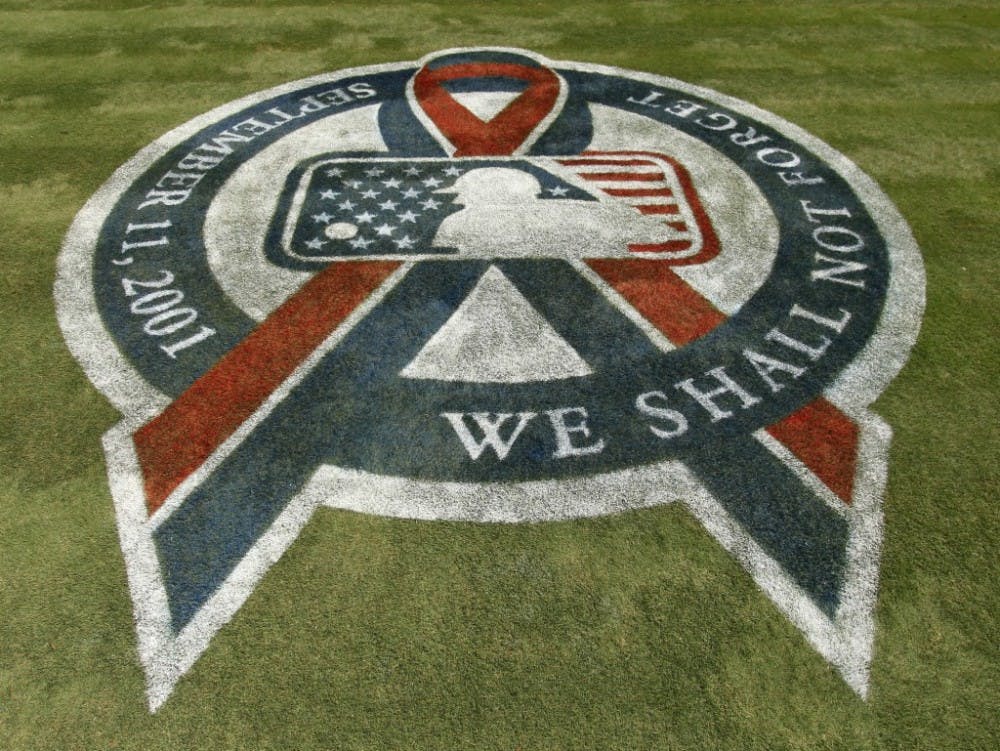In no way, shape or form are sports for everyone. While they might be a major part of my life, they're not for everyone.
I don't force sports on anybody. I probably used to as a naive kid in middle school and high school, but I started to realize sometime near the end of my high school years they're not what matter most in life.
Fans sometimes underestimate what a baseball or football game really means to them. Normally, they're just another game between two teams fighting for what every team wants most in all sports: a win.
We take for granted the calming sense a sporting event offers for us; the sense of normalcy.
When normalcy is taken from us, such as it was 12 years ago on Sept. 11, 2001 and even more recently near the finish line of the Boston Marathon on April 15, 2013, sports have helped America set course on the long road to recovery.
On Sept. 17, 2001, Major League Baseball returned to stadiums around the country just six days after the World Trade Center towers collapsed when planes flew into them in New York City. While many wondered if baseball should start filling stadiums with thousands on thousands of people just six days after the worst terrorist attack in United States' history, fans came out in bunches.
The late-Jack Buck wrote a poem in the days leading up to baseball's return, reading it in Busch Stadium in St. Louis prior to the game between the Cardinals and Milwaukee Brewers.
In it, he poses the question: "Should we be here?" His answer was a resounding yes.
http://youtu.be/EvP97Z_bvIs
In the first sporting event back in New York City following the attacks, the New York Mets and Atlanta Braves squared off in front of 41,275 fans on Sept. 21. The much-hated rivals embraced one another before the game, proving it isn't only the love of the competition that brings the sides together, but the fact they're all there for one reason: to help a wounded nation.
While most looked over their shoulders most of the night, all eyes were front and center for the moment that told not only Mets fans, but the nation as a whole, everything would be okay.
In the eighth inning, Mets' catcher Mike Piazza launched a no-doubter home run to center field. As he rounded the bases, fans went crazy, seemingly forgetting, even if just for a few moments, what had happened just nine days before.
http://youtu.be/cBMC1tA4CdM
That one home run was the start of healing in New York City; the start of the return to normalcy for the nation.
Even President George W. Bush used sports as a symbol the United States wouldn't back down and shy away after the attacks.
On October 30, Bush threw out the first pitch of Game 3 of the World Series in New York City between the Arizona Diamondbacks and the New York Yankees. In front of thousands of fans, Bush took the mound, just like it was any other game on any given day, and threw a strike to home plate. He walked off to the crowd chanting, "U.S.A., U.S.A., U.S.A."
http://youtu.be/UXuxCqPKflo
David Ortiz gave a rousing speech following the bomb that exploded at the Boston Marathon earlier this year that included an explicative that nobody saw coming. Was dropping the f-bomb necessary? You bet it was.
http://youtu.be/-QLuNl3IfhY
Twelve years after those horrific attacks on the United States, we remember those who fell on Sept. 11, 2001 and in the aftermath following it. We remember those who have passed while serving for our country and fought for our freedom, and we thank those currently serving overseas helping to protect each of us every day.
Who knows what will happen with the Syria conflict. Only time will tell. But one thing is for sure: if something happens again to the United States, sports will be there to allow fans to escape from the questions and tragedy, even if only for a few hours at a time.
Twelve years later, Buck's answer to his own question of whether we should've been in stadiums just six days after 9/11 might have gone a little something like this: "Hell yes."
And it would have absolutely been warranted.


